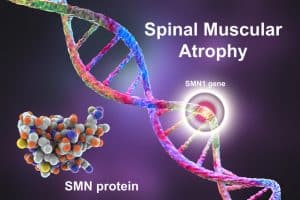
Aspirin trialled as potential treatment for aggressive form of breast cancer
pharmafile | August 18, 2021 | News story | Research and Development |
Aspirin is being trialled in combination with immunotherapy drugs as part of a potential new treatment for an aggressive form of breast cancer that disproportionately affects younger women and black women.
A team at the Christie NHS Foundation Trust in Manchester, funded by the Breast Cancer Now Catalyst Programme, will launch a clinical trial to investigate aspirin, hoping it can make tumours more sensitive to immunotherapy in patients with triple negative breast cancer.
Researchers suspect it is aspirin’s anti-inflammatory properties rather than its analgesic effect that gives the boost.
The research, led by Dr Anne Armstrong, will trial avelumab both with and without aspirin before patients receive surgery and chemotherapy treatment.
Animal studies have already shown encouraging results.
About 8,000 women are diagnosed with triple-negative breast cancer in the UK each year – a less common but often more aggressive type of breast cancer. These tumours lack receptors some other breast cancers have, meaning certain treatments, such as herceptin, will not work. Although, other medicines and treatments can help.
Dr Armstrong said: “Not all breast cancers respond well to immunotherapy.
“Trialling the use of a drug like aspirin is exciting because it is so widely available and inexpensive to produce.
“We hope our trial will show that, when combined with immunotherapy, aspirin can enhance its effects and may ultimately provide a safe new way to treat breast cancer.”
Breast Cancer Now said successful results could lead to further clinical trials of aspirin and avelumab for incurable secondary triple negative breast cancer, which happens when cancer cells that started in the breast spread to other parts of the body.
Dr Simon Vincent, Director of Research, Support, and Influencing at Breast Cancer Now, said: “The 8,000 women diagnosed with triple negative breast cancer in the UK each year face the frightening reality of limited treatment options – we urgently need to address this.
“Research has already suggested aspirin could improve outcomes for many cancer patients and we hope that Dr Armstrong’s trial will show the same to be true for patients with triple negative breast cancer, so that we can prevent more lives being lost to this devastating disease.”
Co-researcher Dr Rebecca Lee said their lab findings suggested that aspirin can make certain types of immunotherapy more effective by preventing the cancer from making substances that weaken the immune response.
“We hope aspirin can dampen down bad inflammation so the immune system can get on with the job of killing cancer cells,” she said.
Breast Cancer Now said pharmaceutical giant Pfizer has provided the charity with funding through an independent medical research grant and given its researchers access to several Pfizer medicines.
Kat Jenkins






